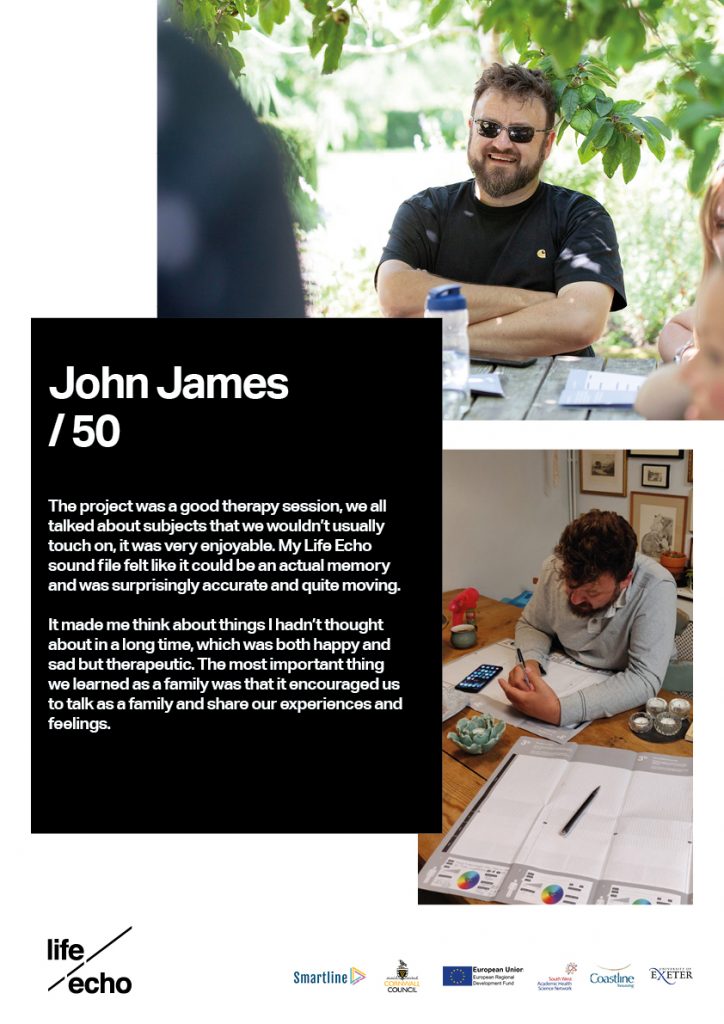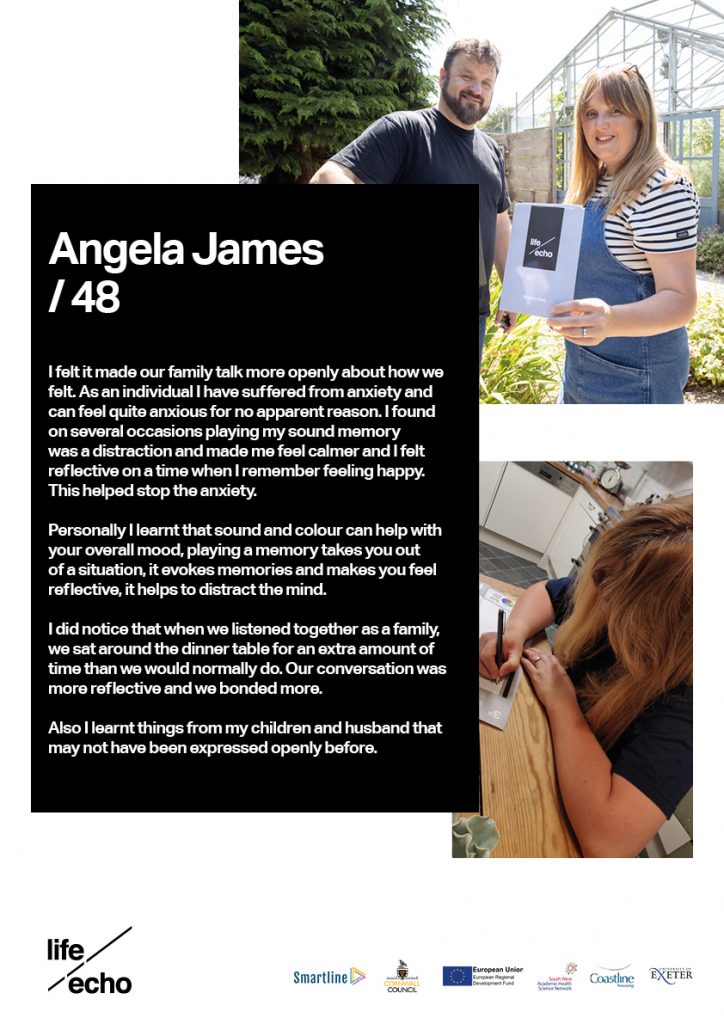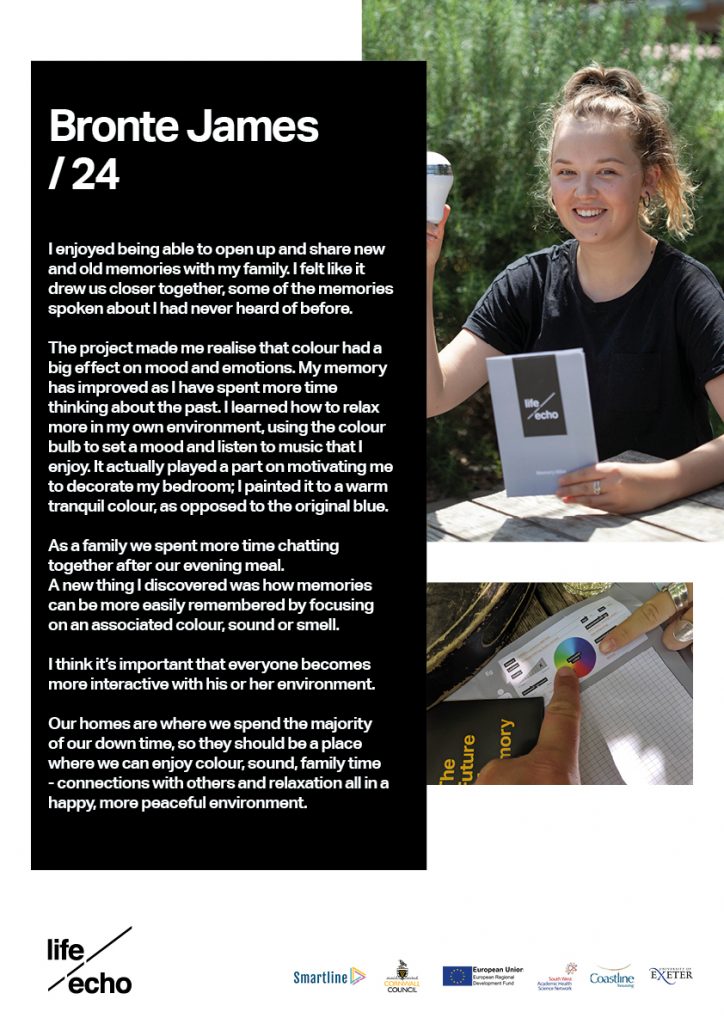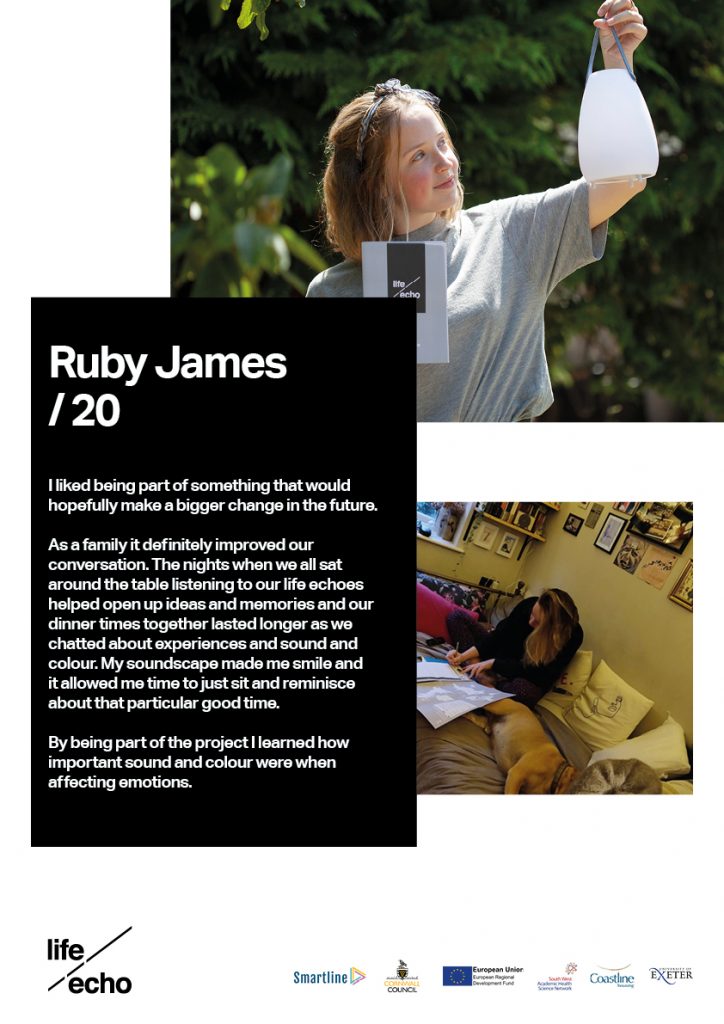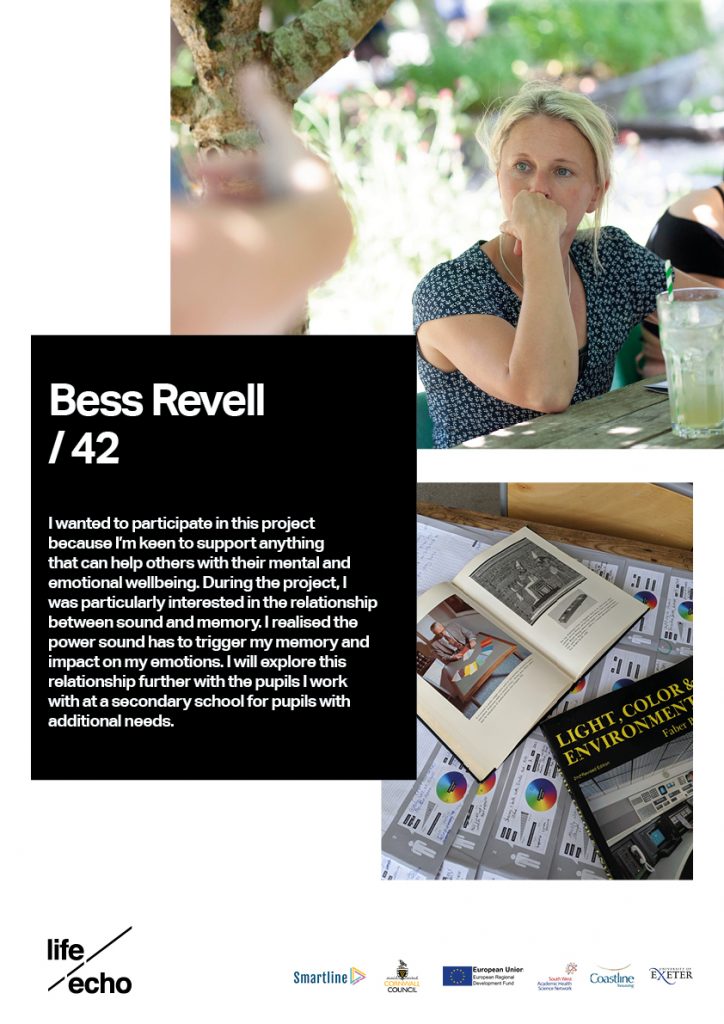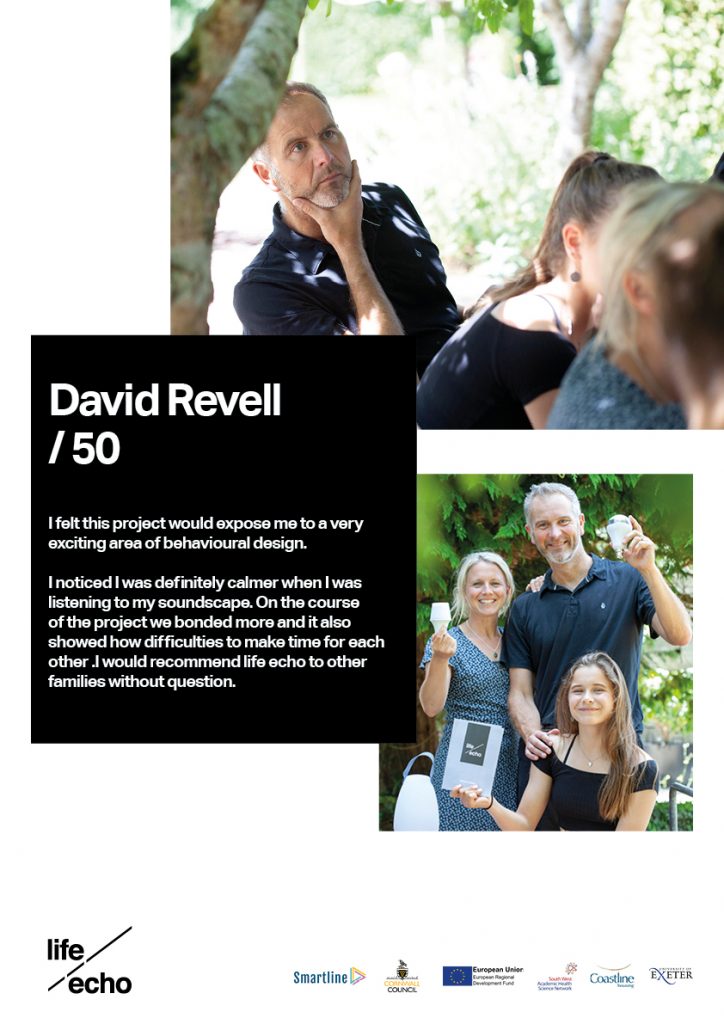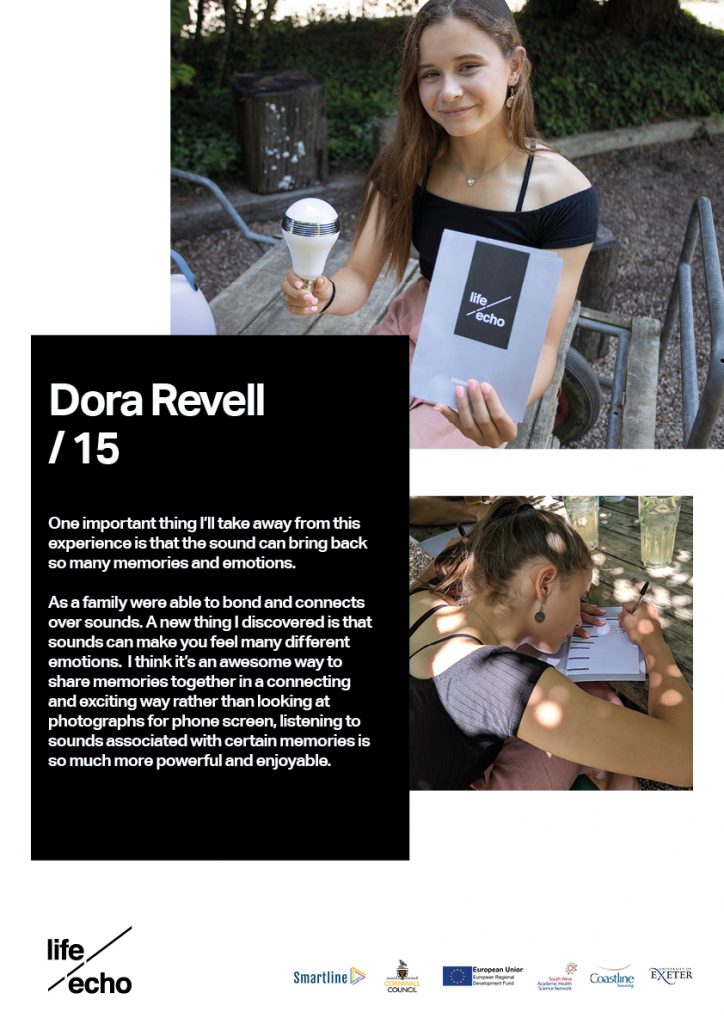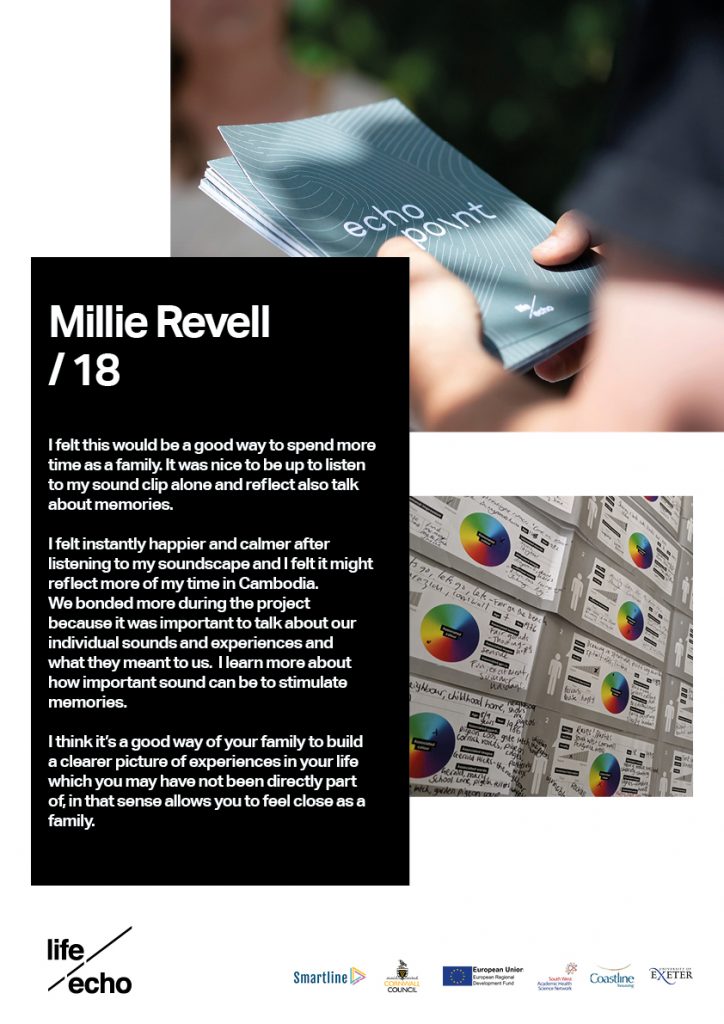In 2019 Life Echo had the opportunity to be part of Smart Line in-residency Scheme.
Smartline is a groundbreaking research project looking at how technology can help us live healthier and happier lives. They are a partnership project led by the University of Exeter with Coastline Housing Ltd, Cornwall Council and Volunteer Cornwall. They are funded by the European Union Regional Development Fund and the South West Academic Health Science Network.
I set a specific experiment for the residency to:
- Establish the use of Life Echo as a family digital domestic wellbeing tool.
- Be a service to control / aid energy usage via memory soundscapes and improved emotional mental health and to create a resilient home.
- To build a line of related add on commercial product of a Smart Sound Speaker Lightbulb to integrate with the digital platform.
- To support individuals in control of their own well-being to continue outside into the workplace by the individuals taking the soundscapes with them between transitions (work and home).
- To fit in the Smartline rationale by being a pioneering digital project in sound, light and wellbeing in having an impact on positively effecting personal health in physical mental and emotional terms and also to effect the environment. (Does a happier person use less energy in the home?).
This Smartline in residence gave me the opportunity to dedicate time to investigate and unlock the huge commercial potential life-echo has as in domestic service, it also allowed time to work with the research specialists to create the core life-echo scoring system which the users in their homes can understand and see the impact is having on their health .
The implementation of the system means that a new service would mean faster customer usage of Life Echo and a complementary set of research data for the link between wellbeing, memory and sound.
Future research could explore the potential energy-saving, for example is there a possible link between mental health resilient home and energy use? The results of which could be stepped forward into a pilot/trial research project to answer the question “Can well-being control energy use in the home?”
